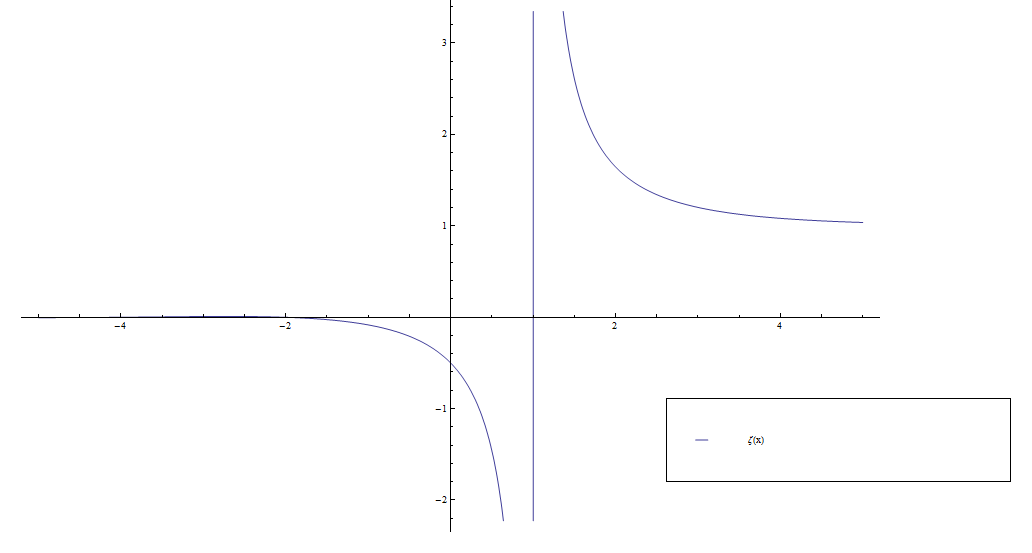Difference between revisions of "Riemann zeta"
From specialfunctionswiki
(→Properties) |
|||
| Line 14: | Line 14: | ||
<div class="toccolours mw-collapsible mw-collapsed" style="width:800px"> | <div class="toccolours mw-collapsible mw-collapsed" style="width:800px"> | ||
<strong>Proposition (Euler Product):</strong> $\zeta(z)=\displaystyle\sum_{n=1}^{\infty} \dfrac{1}{n^z} = \displaystyle\prod_{p \mathrm{\hspace{2pt} prime}} \dfrac{1}{1-p^{-z}}$ | <strong>Proposition (Euler Product):</strong> $\zeta(z)=\displaystyle\sum_{n=1}^{\infty} \dfrac{1}{n^z} = \displaystyle\prod_{p \mathrm{\hspace{2pt} prime}} \dfrac{1}{1-p^{-z}}$ | ||
| + | <div class="mw-collapsible-content"> | ||
| + | <strong>Proof:</strong> █ | ||
| + | </div> | ||
| + | </div> | ||
| + | |||
| + | <div class="toccolours mw-collapsible mw-collapsed" style="width:800px"> | ||
| + | <strong>Proposition:</strong> Let $n$ be a positive integer. Then | ||
| + | $$\zeta(2n)=(-1)^{n+1}\dfrac{B_{2n}(2\pi)^{2n}}{2(2n)!},$$ | ||
| + | where $B_n$ denotes the [[Bernoulli numbers]]. | ||
<div class="mw-collapsible-content"> | <div class="mw-collapsible-content"> | ||
<strong>Proof:</strong> █ | <strong>Proof:</strong> █ | ||
Revision as of 01:19, 19 October 2014
Consider the function $\zeta$ defined by the series $$\zeta(z) = \displaystyle\sum_{k=0}^{\infty} \dfrac{1}{n^z}.$$
Properties
Proposition: If $\mathrm{Re} \hspace{2pt} z > 1$, then the series defining $\zeta(z)$ converges.
Proof: █
Proposition (Euler Product): $\zeta(z)=\displaystyle\sum_{n=1}^{\infty} \dfrac{1}{n^z} = \displaystyle\prod_{p \mathrm{\hspace{2pt} prime}} \dfrac{1}{1-p^{-z}}$
Proof: █
Proposition: Let $n$ be a positive integer. Then $$\zeta(2n)=(-1)^{n+1}\dfrac{B_{2n}(2\pi)^{2n}}{2(2n)!},$$ where $B_n$ denotes the Bernoulli numbers.
Proof: █
